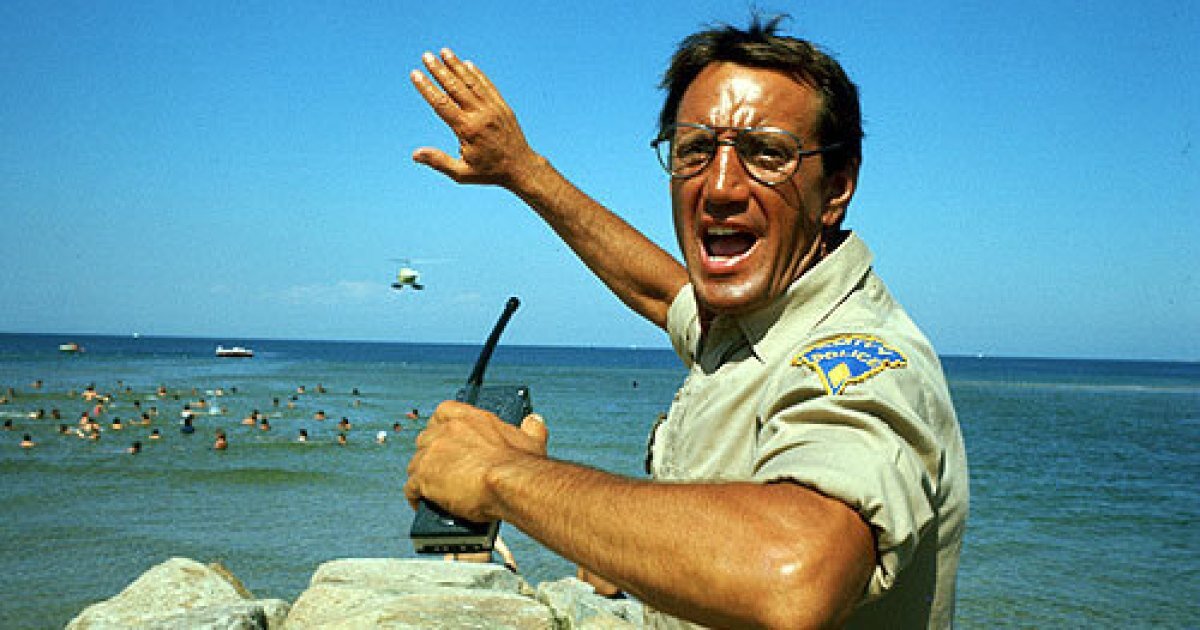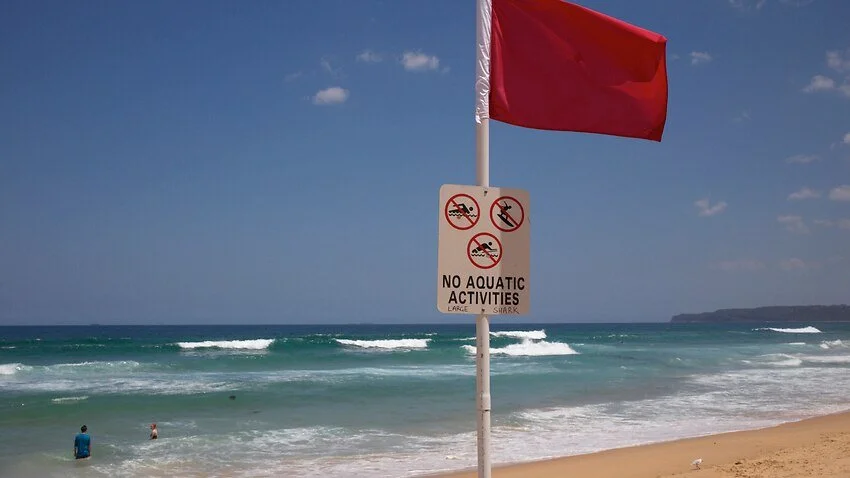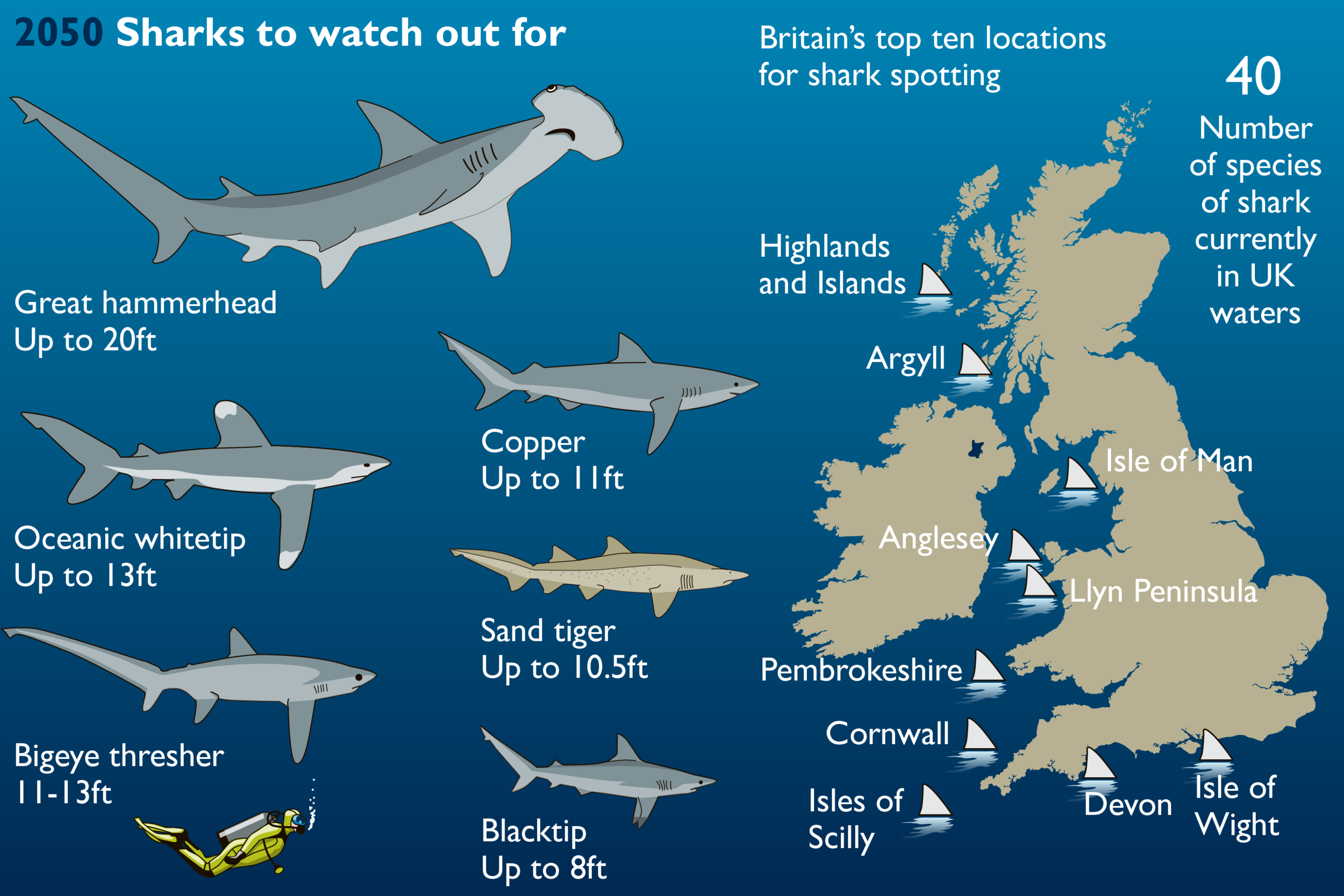AFTER 'BOURNEMOUTH SHARK SIGHTING' WHY IS THE UK MEDIA DESPERATE FOR US TO FEAR SHARKS?
There's a shark frenzy in the UK, but despite shark sightings, it's not them causing the frenzy, it's the media.
A stretch of water off a beach in Bournemouth was temporarily cleared by lifeguards after reports of a 'large marine animal' were spotted.
Of course, lots of media are comparing the evacuation to like a scene from Jaws. Even though it clearly wasn't.
And it isn't likely that great white sharks are in British waters: Are Great White Sharks In British Waters?
On learning about the sighting, the Royal National Lifeboat Institution (RNLI) warned swimmers on the busy beach to get out of the sea as a precautionary measure.
They put red flags up and closed the beach for over an hour, with members of the RNLI going out on jet-skis to check out the waters. They didn't find anything, and certainly not a shark.
The BBC News website asserted: The RNLI said it received reports of "significant movement" in the water but lifeguards were unable to formally identify the animal.
So it still hasn't been confirmed that it even was a shark, but, media and public have already made their mind up. The Sun even thought it clever to juxtapose the UK beach with a picture of a great white shark. Totally irresponsible.
What the real story was then was, shark goes about its usual business and unwittingly worries some people near a beach. But that doesn't sell newspapers or invite website clicks does it?
And some of those media are dragging the story out further than a chum line. Sharks live in the UK waters, we all know that, so quite why papers have got quite so giddy about some sharks that were filmed weeks earlier is frankly ridiculous.
But, that didn't stop The Mirror et al running such headlines as "Sharks filmed swimming off UK coast just weeks before nearby beach evacuated."
That's where they live, that's what they do and - to paraphrase Matt Hooper in Jaws - the chances of it being the same shark or sharks that caused the beach panic - it was cleared after an hour - is a hundred to one and then some.
Throwing further petrol on this story was The Star - it was also featured across lots of other media - reporting 'Boy, 11, 'lucky to be alive' after shark 'brushed past his leg' off Brit beach'.
This was on the same day on the same beach as the sighting that caused all these waves in the UK national media. If a shark did brush his leg, then it is extremely likely that it was a small shark and a species that posed no threat to human life.
Bournemouth is located on the south coast of England
The Mirror, clearly hoping to suck this particular beach 'shark sighting' story dry, even rustle up the click baiting 'UK's worst shark attacks - Mini Jaws, battle with 'The Beast' and deadly 'torpedo', were one of the stories - about a dinghy which struck a basking shark in 1937, it capsized and resulted in the three on board drowning - is poorly mislabelled as 'UK's deadliest shark attack'. Hardly.
Not that it is just UK media who employ such dramatic language to provoke a response: Media's Feeding Frenzy on Shark Attacks
All of this media activity is the sort of nonsense we see every summer in UK media, and indeed was even the sort of unfortunate activity The Daily Jaws even predicted: SILLY SUMMER GREAT WHITE STORIES SURFACE... AGAIN
Words by Dean Newman
If you would like to contribute a guest blog, please visit our ‘work with us’ page
Ross from The Daily Jaws speaks with psychologist Dr Brianna Le Busque PhD about her latest paper 'Sharks on film: an analysis of how shark-human interactions are portrayed in films' to better understand why we are still afraid of sharks and if 'The Jaws Effect' is really to blame.




